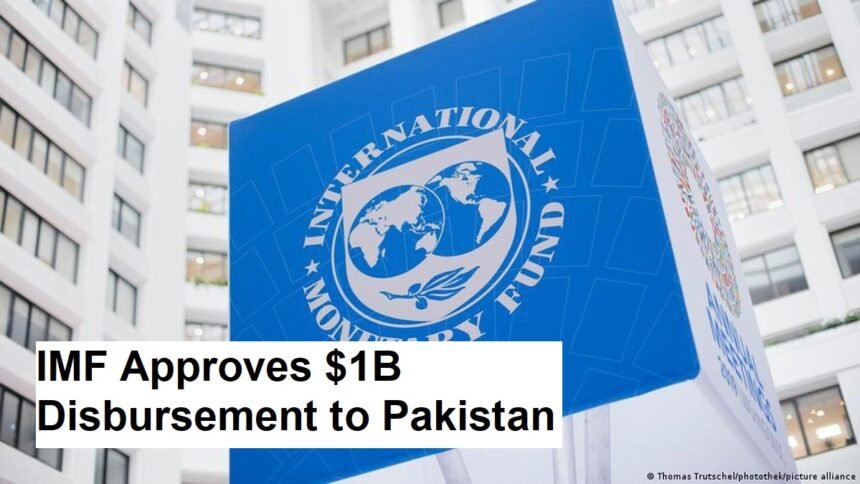On May 9, 2025, the International Monetary Fund (IMF) approved the immediate disbursement of approximately $1 billion to Pakistan under its ongoing Extended Fund Facility (EFF) program. This decision marks a significant milestone in Pakistan’s efforts to stabilize its economy amid persistent financial challenges. The newly approved funds bring the total disbursements under the current IMF arrangement to about $2.1 billion, reflecting the continued international support for Pakistan’s economic reform agenda.
Pakistan has been grappling with a complex economic situation characterized by high inflation, fiscal deficits, and a growing debt burden. The country’s reliance on external financing has increased substantially in recent years, with loans and aid playing a crucial role in sustaining government operations and development projects. As of March 31, 2025, Pakistan’s outstanding loans stood at approximately $6.2 billion, underscoring the scale of its financial obligations. The IMF’s $7-billion bailout program, under which the recent disbursement falls, is designed to provide Pakistan with the necessary financial resources while encouraging structural reforms to promote long-term economic stability.
The Extended Fund Facility is a key instrument through which the IMF supports countries facing balance of payments problems. It provides medium-term financial assistance contingent upon the implementation of policy measures aimed at restoring macroeconomic stability and fostering sustainable growth. For Pakistan, the EFF program includes commitments to fiscal consolidation, improving tax collection, reducing subsidies, and enhancing governance and transparency in public finances.
The immediate release of $1 billion is expected to provide Pakistan with much-needed liquidity to meet its external obligations, including debt repayments and import financing. This injection of funds is crucial for maintaining confidence among investors and international partners, as well as for stabilizing the Pakistani rupee, which has faced depreciation pressures in recent months. The disbursement also signals the IMF’s continued endorsement of Pakistan’s reform efforts, which are vital for unlocking further financial support from other international donors and financial institutions.
While the IMF’s approval is a positive development, it often comes with conditions aimed at ensuring that the recipient country undertakes necessary reforms to address underlying economic weaknesses. Although specific conditions related to this disbursement have not been publicly detailed, typical IMF programs require measures such as tightening fiscal policy, enhancing revenue mobilization, and implementing structural reforms to improve economic governance. These conditions are designed to help Pakistan reduce its fiscal deficit, control inflation, and create a more conducive environment for investment and growth.
The Pakistani government, through its Prime Minister’s Office (PMO), welcomed the IMF’s decision, emphasizing the importance of the disbursement in supporting the country’s economic recovery. Officials highlighted that the funds would be used prudently to stabilize the economy and protect vulnerable segments of the population from the adverse effects of economic adjustments. The government also reiterated its commitment to continuing reforms in line with the IMF’s recommendations, aiming to achieve sustainable development and improve living standards.
The broader geopolitical context adds another layer of complexity to Pakistan’s economic situation. The country’s relations with neighboring India remain tense, and regional stability is closely linked to economic stability. International financial support, including from the IMF, plays a critical role in enabling Pakistan to manage its economic challenges without exacerbating political tensions. Moreover, the IMF’s involvement often encourages dialogue and cooperation among regional actors by promoting economic stability as a foundation for peace.
Critics of IMF programs sometimes argue that the conditions attached to loans can lead to austerity measures that disproportionately affect lower-income populations. In Pakistan’s case, the government faces the delicate task of balancing fiscal discipline with social welfare needs. Ensuring that reforms do not undermine social cohesion or economic growth is a key challenge moving forward.
In conclusion, the IMF’s approval of a $1 billion disbursement to Pakistan under the Extended Fund Facility represents a crucial step in supporting the country’s economic stabilization efforts. This financial assistance provides immediate relief to Pakistan’s balance of payments pressures and reinforces the international community’s confidence in the country’s reform agenda. While challenges remain, including the implementation of necessary policy measures and managing social impacts, this development offers hope for a more stable and prosperous economic future for Pakistan. The coming months will be critical in determining how effectively Pakistan leverages this support to achieve sustainable growth and regional stability.









